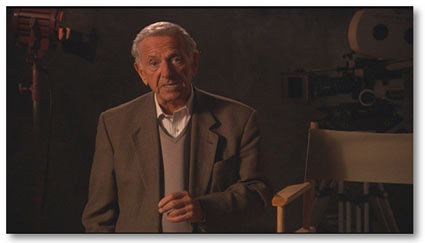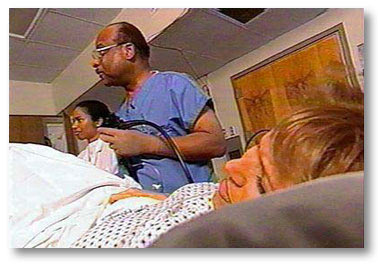- 10/1/2004
- ANN ARBOR, MI
- By Sheri Hall
- The Detroit News
Americans listen to stars’ pitches, U-M scientist says.
— A University of Michigan researcher says he’s found a magic potion that may convince Americans to quit smoking, get regular check-ups and take their medicine: Stardom.

Dr. A. Mark Fendrick — who studies factors that influence health behavior — found that while people often ignore their spouses and even their doctors when it comes to health issues — they will listen to celebrities. “Americans are star-struck,” Fendrick said. “They buy the shoes that stars wear, they drink the soft drinks they drink, so it follows that they’ll go ahead and follow their healthy lifestyles.”

Fendrick’s initial study, published last year, tracked colon cancer screenings after NBC’s “Today Show” host Katie Couric underwent an on-air colonoscopy test in 2001. She became an advocate for the screenings after her husband died of colon cancer in 1998. “The second she went on TV, I thought of the idea,” Fendrick said. For nine months after Couric’s on-air test, Fendrick and his fellow researchers surveyed 400 gastrointestinal doctors in 22 states to find out how many colonoscopies they performed weekly. And the researchers tracked the tests among 44,000 patients in a Michigan health maintenance organization. Researchers found a 20 percent increase in the screenings in both groups. “Before Katie, there had been a tremendous effort in encouraging people to get colon cancer screenings, and our efforts were utter failures,” Fendrick said. “This works. “

Fendrick is now tracking campaigns by movie stars Halle Berry on diabetes and Nicole Kidman on breast cancer. Drug companies are taking Fendrick’s message to heart. Bristol Myer Squibb capitalized on the phenomenon this summer in commercials featuring cyclist Lance Armstrong, a cancer survivor and six-time Tour de France. And Pfizer Inc., which routinely uses celebrities spokespeople, has just signed on with a Hollywood talent firm to develop marketing ideas that could include linking Pfizer products with movies and television shows. How much drug companies spent on celebrity marketing isn’t available, but in 2003 the industry spent $3.4 billion on direct-to-consumer advertising — up from $2.7 billion in 2001.

“This is about educating people and making them feel comfortable to go to the doctor and talk about these issues,” Pfizer spokeswoman Laura Glick said.
“If you look at the number of patients undiagnosed and untreated, Pfizer is continually looking for new ways to get information to those patients,” she said. “There’s evidence that celebrities can help eliminate the stigma associated with some diseases and encourage people to go to the doctor.”
To be effective, Fendrick says, celebrities must get the facts straight. And it helps if they have some personal connection to the disease they’re publicizing.
While Fendrick’s research focuses on celebrities who want to promote a public service message, drug companies say the concept of stars de-mystifying disease carries over to paid spokespeople. Pfizer, which has operations in Ann Arbor and Kalamazoo, has hired actress Teri Garr, who suffers from multiple sclerosis, to educate the public about the disabling disease and promote its drug Rebif. And the company partnered with singer Naomi Judd to increase awareness about panic disorders and promote its anti-depressant Zoloft.
“You want to show they’re real people and they suffer from these conditions too,” Pfizer’s Glick said.

Leave A Comment
You must be logged in to post a comment.